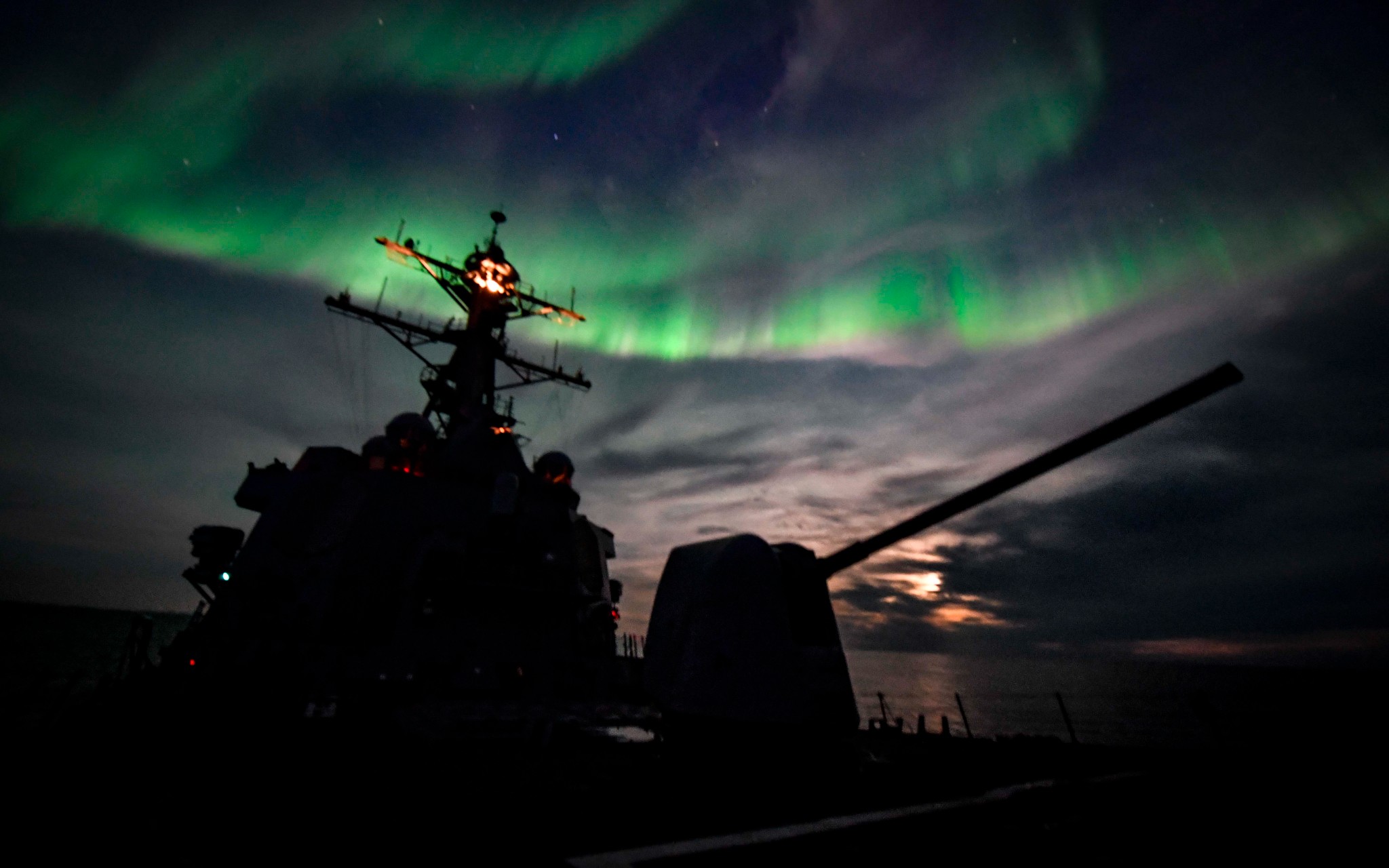 CC Image c/o Official U.S. Navy Page on Flickr. License: https://bit.ly/37qytjx.
CC Image c/o Official U.S. Navy Page on Flickr. License: https://bit.ly/37qytjx.
Trump Memo Calls for New U.S. Arctic Fleet
On Tuesday, President Trump released a memo calling for a fully deployable polar security icebreaking fleet by FY2029. In pursuit of this objective, the memo mandates an operational assessment of current U.S. icebreaking capabilities in the Arctic and Antarctic. The assessment is due in 60 days and must consider: present and future capacity for resource exploration and exploitation, the need to lay and maintain undersea cables, the level of armaments necessary to defend against geopolitical competitors, and the potential for nuclear-powered vessels.
In a conversation with High North News, the American Security Project’s Chief Operating Officer Andrew Holland voiced concern over arming U.S. icebreakers:
“If we want the Arctic to be a zone of peace, we shouldn’t build armed icebreakers. Icebreakers are an important part of providing access to the polar regions—including for armed vessels. But they probably shouldn’t be armed themselves.”
To bridge the short-term gap of available vessels, the memo directs the Departments of State and Homeland Security to identify both domestic and international leasing options. Any vessels so leased must be capable of furthering American objectives in the Arctic and Antarctic regions—including national and economic security missions, Arctic marine scientific research, and Antarctic research. The memo further requests the Secretary of Homeland Security, in collaboration with other agency heads, to identify and assess at least two domestic and two international bases for the future U.S. fleet.
According to the memo, enhanced polar icebreaking capabilities will ensure a “persistent” U.S. presence in the Arctic and Antarctica.
—
The American Security Project (ASP) has been following Arctic issues for years and recently launched an Arctic program. ASP’s Arctic research focuses on the challenges and opportunities of a changing Arctic and falls into three broad categories: great power competition, climate and energy security, and American competitiveness and leadership. Our most recent work in this area considers the economic, political, and security consequences of an ice-free Arctic; Russian investment in Arctic military and industrial infrastructure; and an increasing U.S. focus on great power competition in the Far North.
To learn more about ASP’s Arctic research, visit our website.





